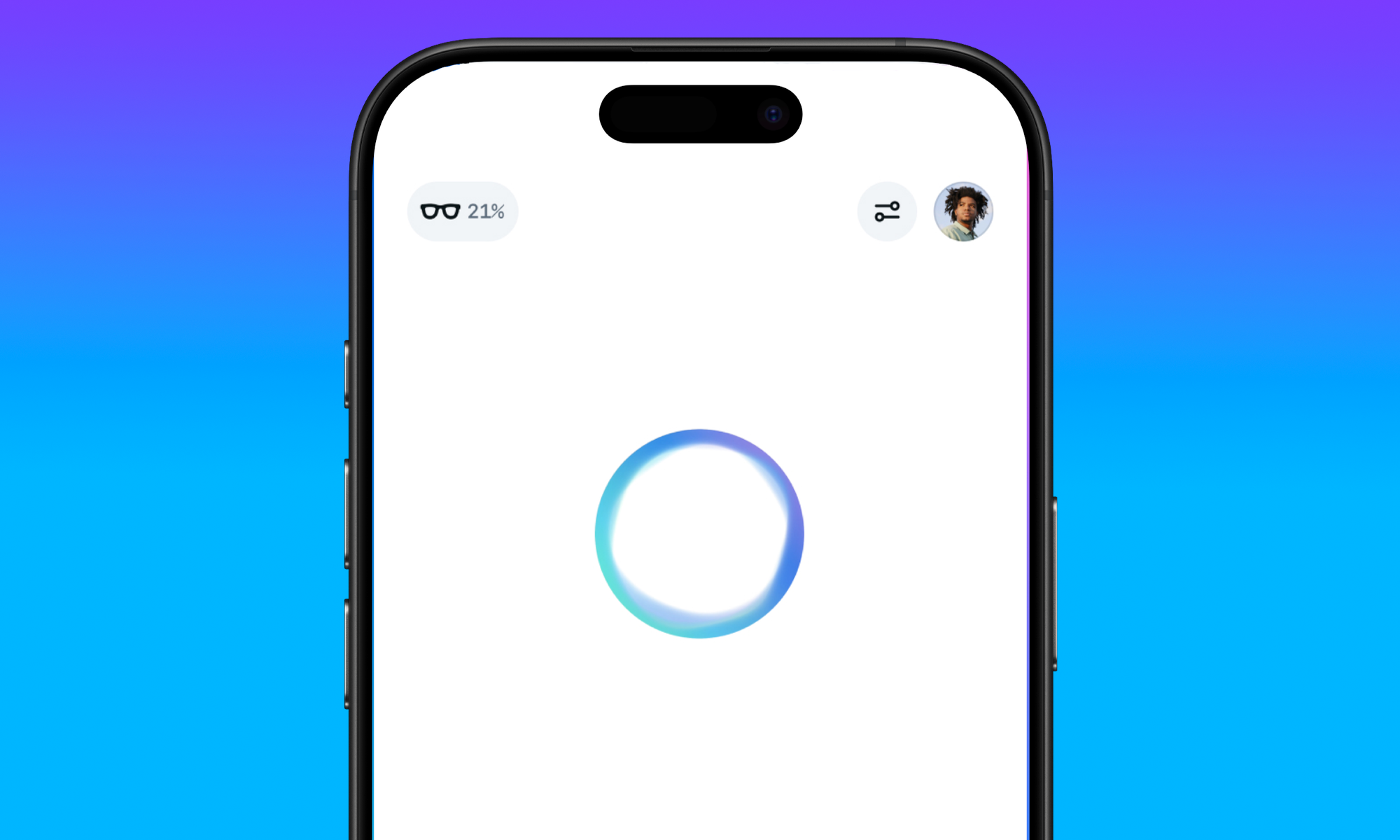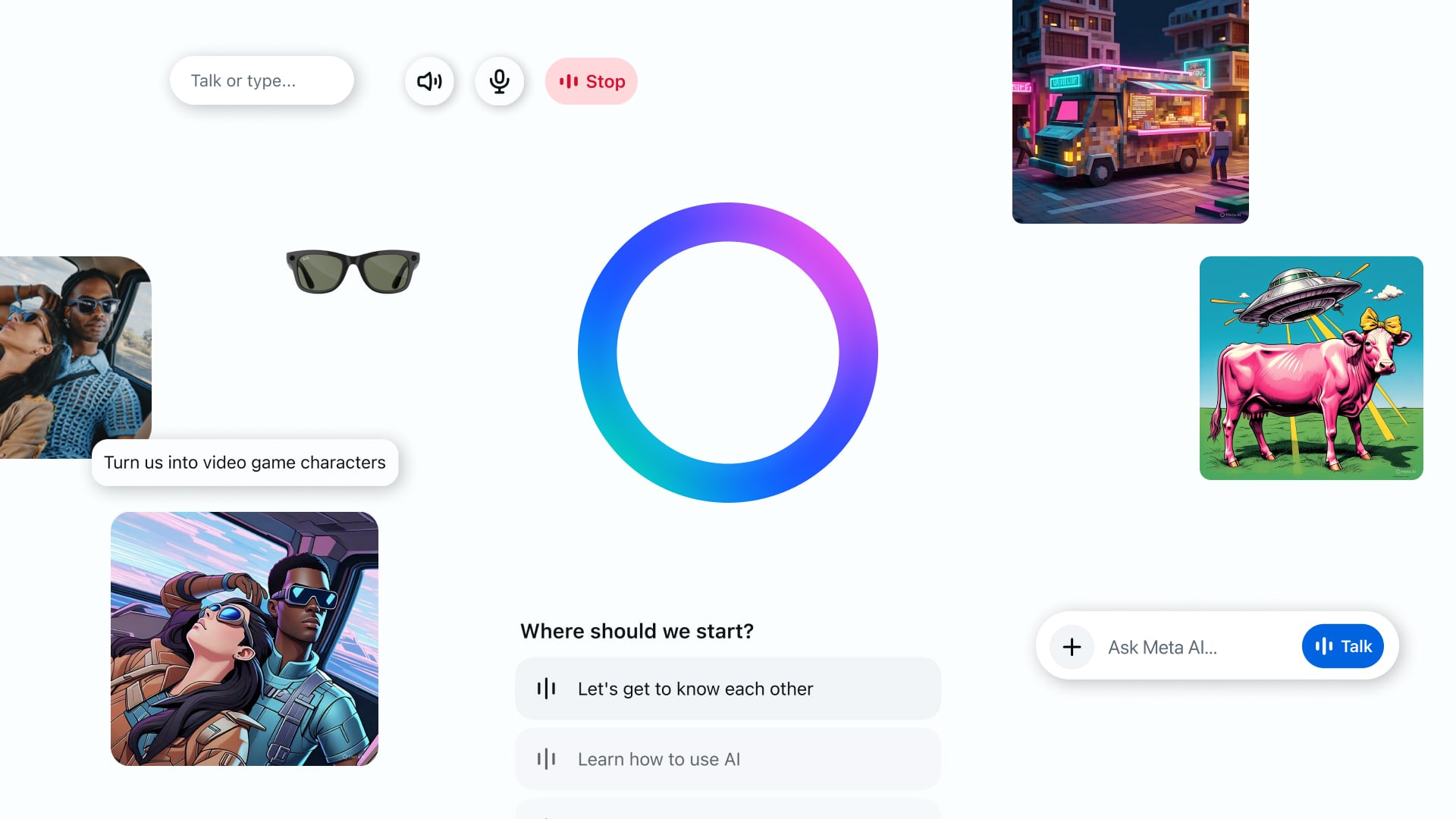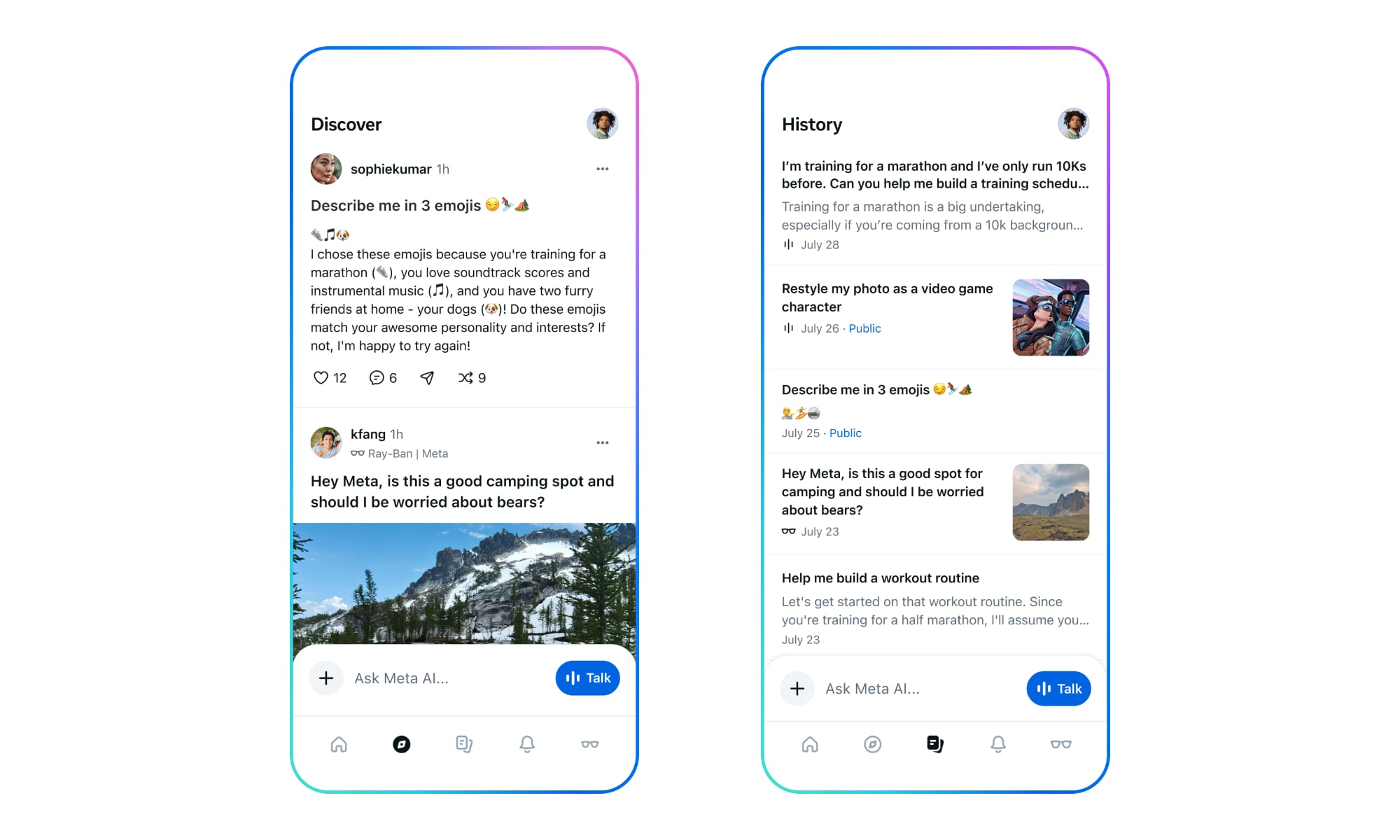Meta Takes on ChatGPT with New iPhone App

Toggle Dark Mode
It looks like the AI chatbot battle is heating up. While ChatGPT was once the only iPhone AI chat app worth talking about, the playing field has since expanded to include Google’s Gemini, Microsoft’s Copilot, and entirely new contenders like DeepSeek. Now, Meta is throwing its hat in the race.
Meta, the company behind Facebook, Messenger, Instagram, and WhatsApp, began baking AI into its apps two years ago. “Meta AI” officially launched in September 2023 as a core component of the second-gen Ray-Ban Meta Smart Glasses but didn’t officially arrive on Facebook and Instagram until April 2024.
However, that was just the start of Mark Zuckerberg’s plans for world domination. The Meta CEO has made it clear he wants his company to be the leader in AI by the end of 2025.
“This is going to be the year when a highly intelligent and personalized AI assistant reaches more than 1 billion people, and I expect Meta AI to be that leading AI assistant,” Zuckerberg told analysts and investors in January.
That won’t happen unless it turns Meta AI loose. In February, Meta announced plans to do precisely that, and today, it unveiled the Meta AI App to offer iPhone users direct access to its AI assistant.
The app is built with the company’s own Llama 4 large language model (LLM), which it announced earlier this month.
Meta AI uses Llama 4 to help you solve problems, navigate your daily questions, and better understand the world around you. With the ability to search across the web, it can help you get recommendations, deep dive on a topic, and stay connected with your friends and family. Or if you’re just looking to play around with it, we provide conversation starters to inspire your searches.
Meta
The Meta AI app is a free download from the App Store and supports both iPhone and iPad. It’s a direct successor and expansion of Meta View, which was exclusively a companion app for Meta’s smart glasses. Meta AI now incorporates these features with a “personal AI assistant” that you can use with or without the glasses.
In addition to the usual chatbot-style text prompts, Meta Ai can also generate and edit images and search the web to recommend products and research topics. “Conversation starters” also help get you started if you’re not quite sure what you’re looking for. Background support also lets you carry on natural voice chats with Meta AI, even while using other apps, although that feature is limited to the United States, Canada, Australia, and New Zealand for now.
ChatGPT gained a “memory” feature earlier this year to help the chatbot learn more about you by remembering the things you’ve discussed in the past; Meta has a leg up on that. Meta AI can draw from the user’s Facebook and Instagram profiles and history “to provide an even stronger personalized experience.”
For example, if you’ve posted a lot of travel photos, Meta AI can glean the fact that you love to travel, tailoring your experiences and delivering more relevant answers to your questions.
Meta is also breaking new social ground with a “Discover” feed that lets you “share and explore how others are using AI.” In other words, it effectively turns your AI requests into yet another Facebook-style timeline. If that sounds like a serious amount of oversharing, the good news is that it’s entirely opt-in; Meta emphasizes that “nothing is shared to your feed unless you choose to post it,” and this apparently needs to be done explicitly for each request, so there’s no risk of accidentally toggling on a mode where everything is suddenly being shared.
Still, as fun as this all sounds, there’s one word conspicuously missing from Meta’s announcement: privacy. Facebook and Instagram aren’t exactly known for their strong policies in this area, and while Meta is struggling to improve them for inherently private apps like WhatsApp, it likely considers more open social apps to be fair game for its AI models.
Meanwhile, Apple is taking the opposite stance with an extremely strong focus on privacy. While Apple Intelligence may not be as advanced as we like yet, it does everything it can to avoid sharing anything without your knowledge and express consent. When it partnered with OpenAI’s ChatGPT, one of the conditions was that queries from Apple Intelligence users would be submitted with complete anonymity for users who haven’t signed up for and logged into a ChatGPT account.
Apple anonymizes the request before it goes to OpenAI, so there’s no personal information about you. ChatGPT won’t know who made the request or where the response is going. OpenAI has also agreed that none of this anonymized data will be used to train its AI models.
OpenAI’s willingness to comply with Apple’s privacy requirements likely helped it beat out data-hungry rivals like Google and Meta. While there’s evidence that Gemini integration is on the way, Apple reportedly rejected a partnership with Meta over privacy concerns. Meanwhile, Meta has gone so far as to disable Apple Intelligence features in its apps, forcing users to rely on its Meta AI chatbot rather than the more privacy-focused Apple Intelligence tools.









